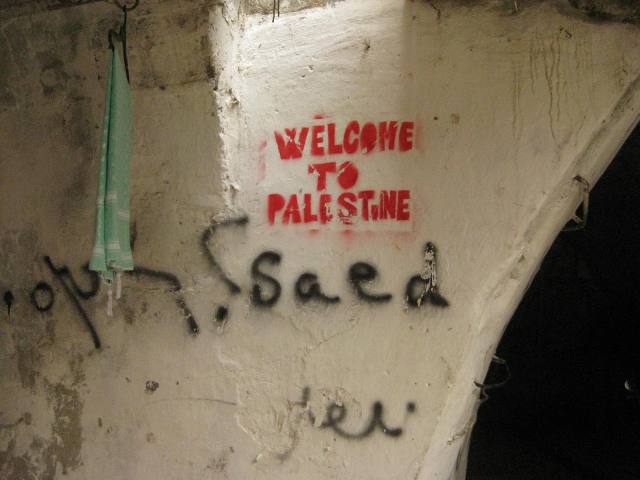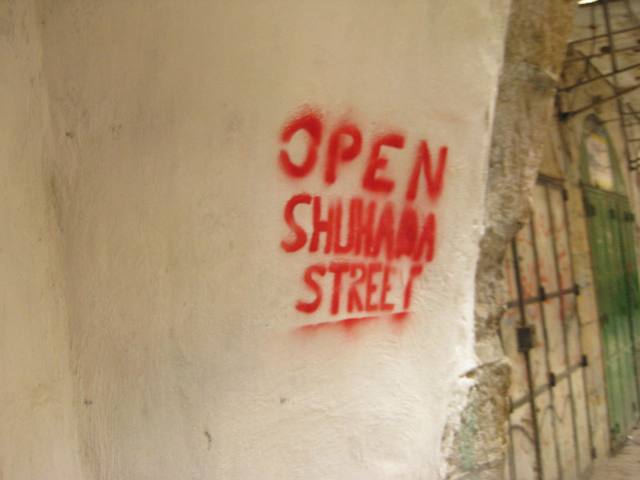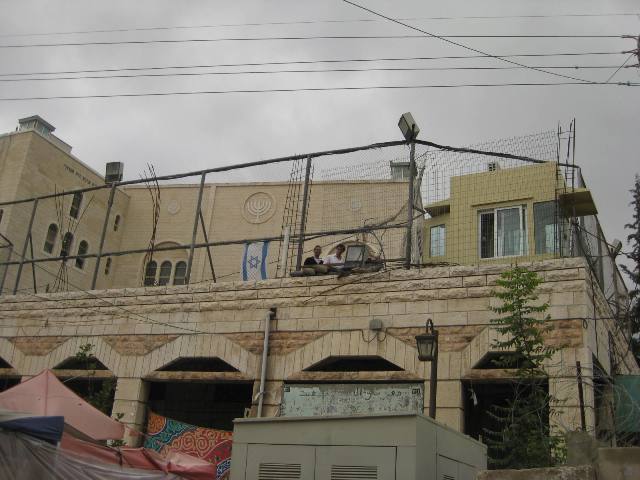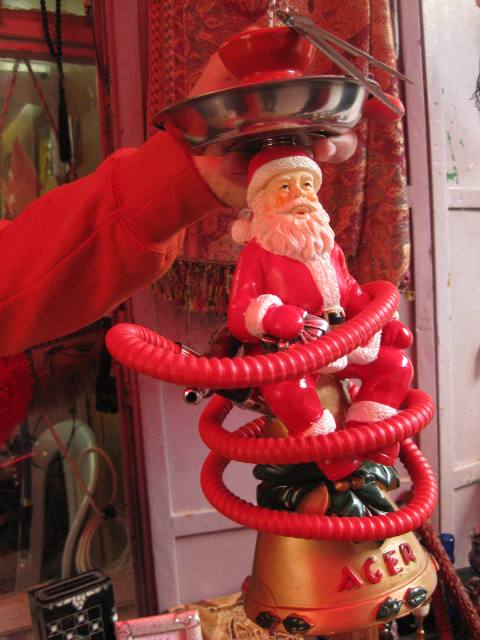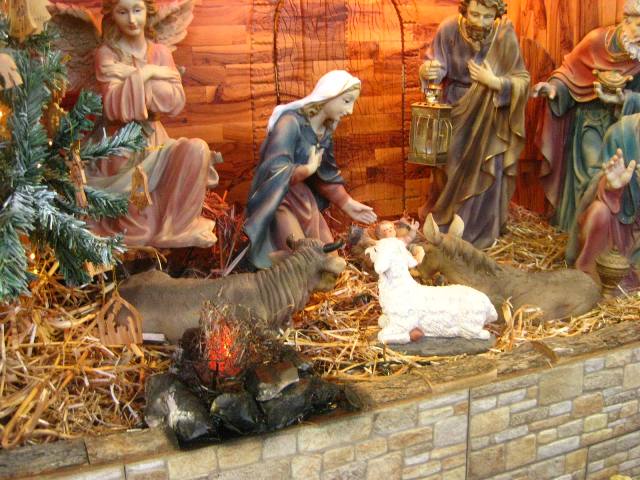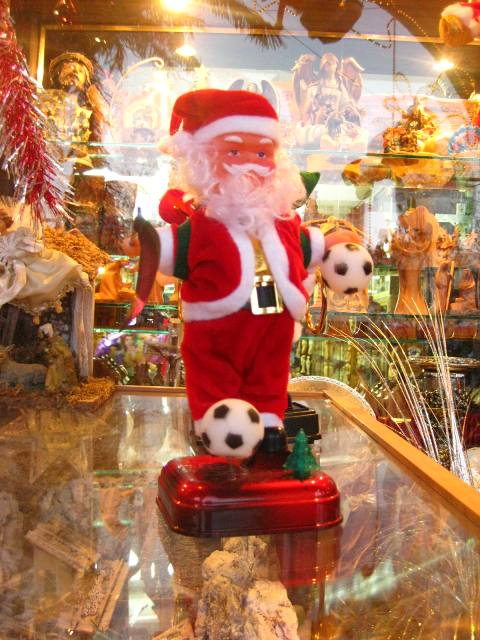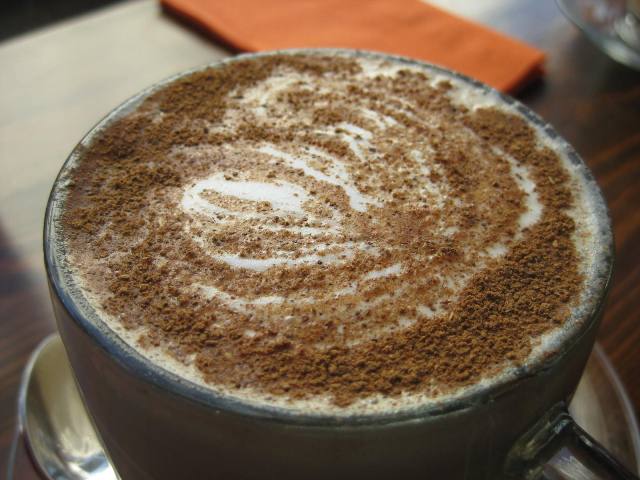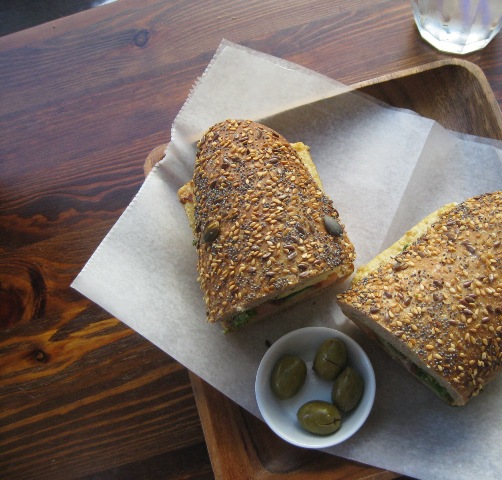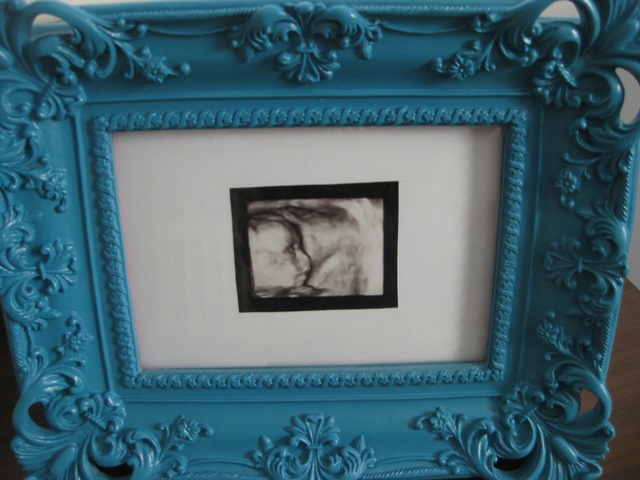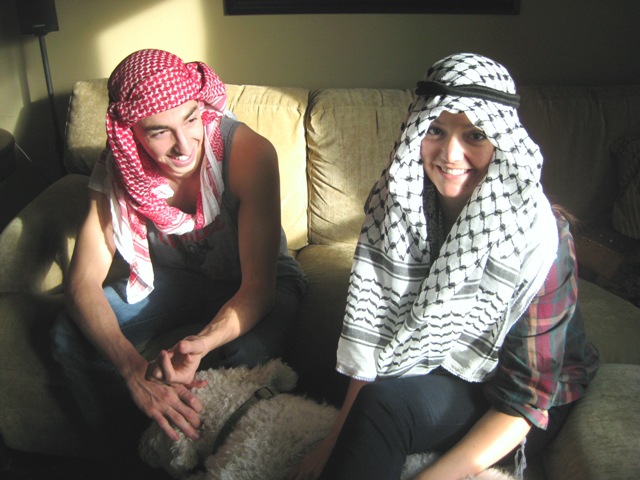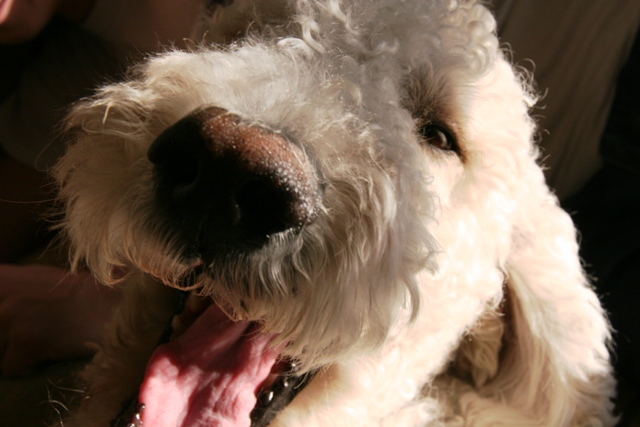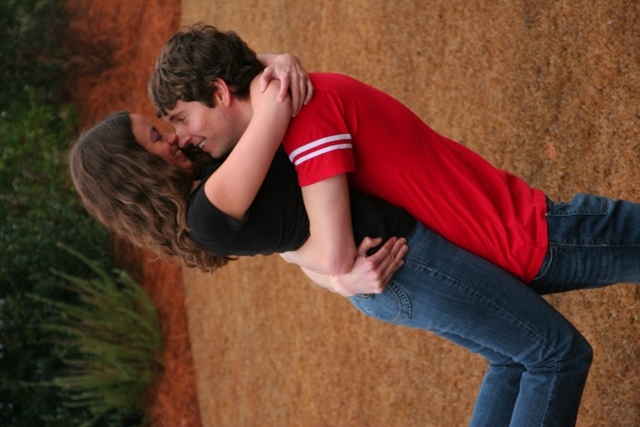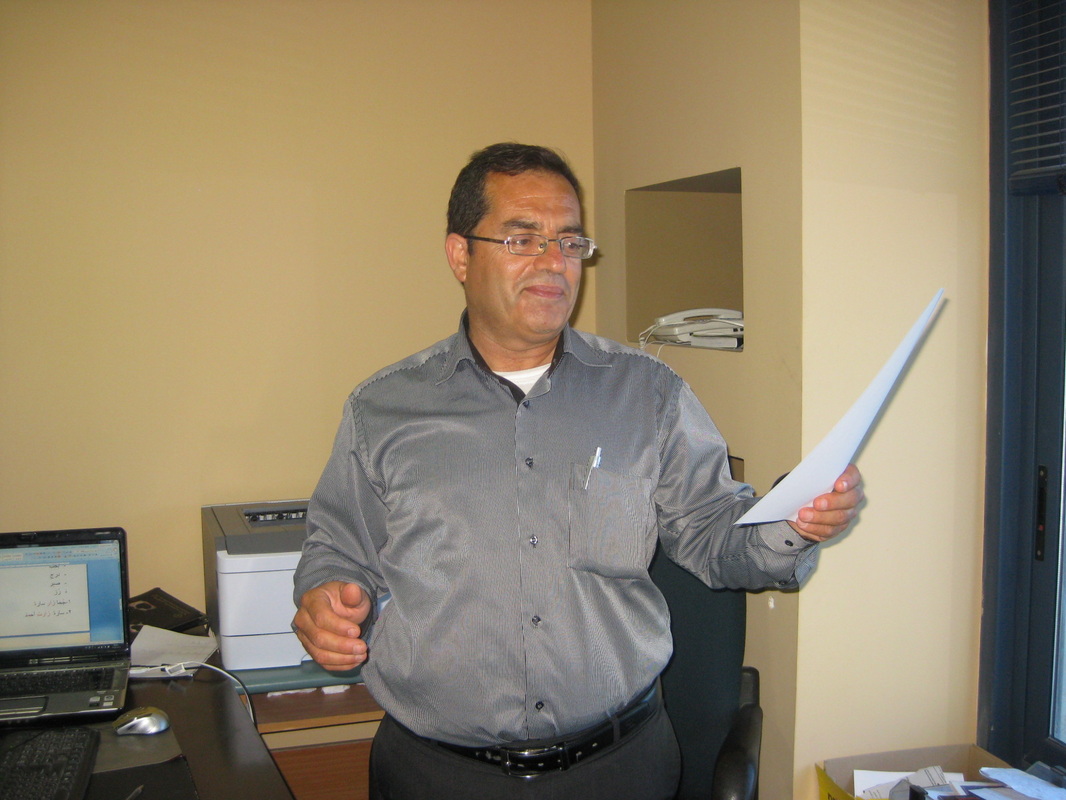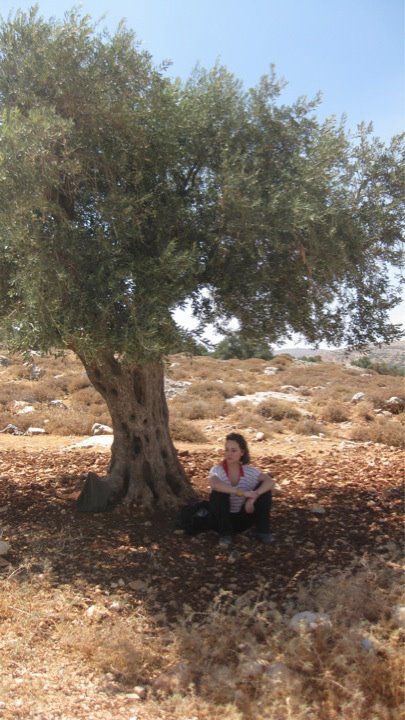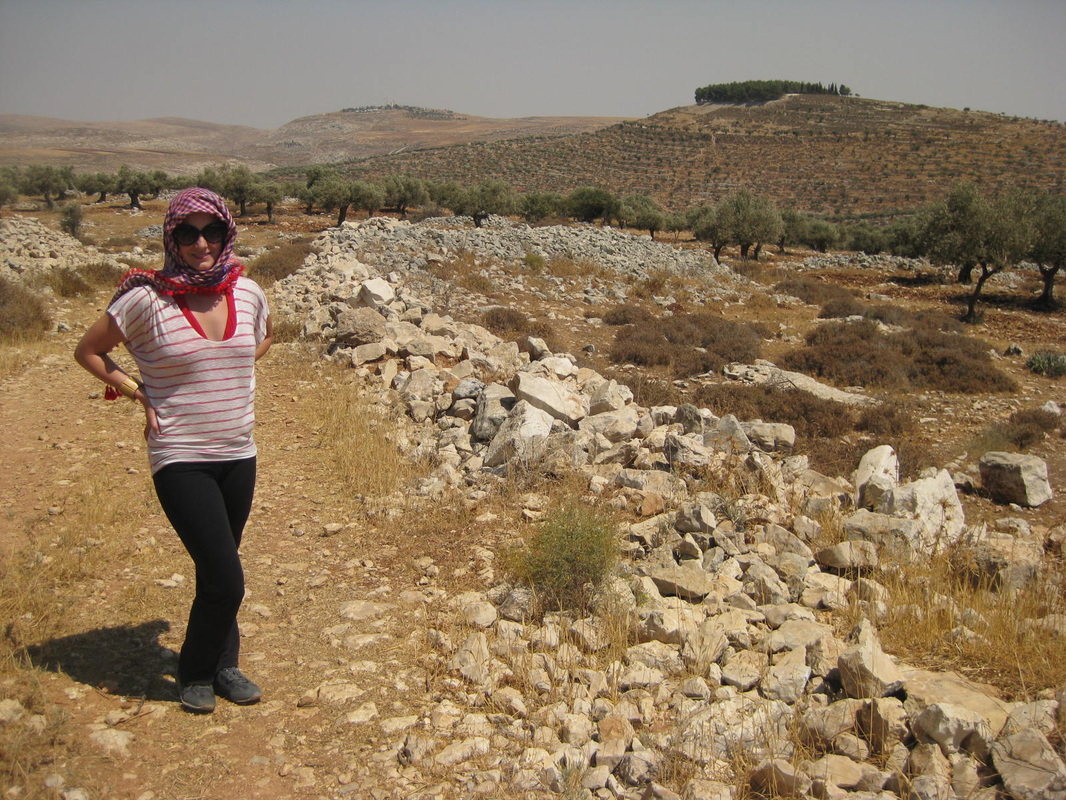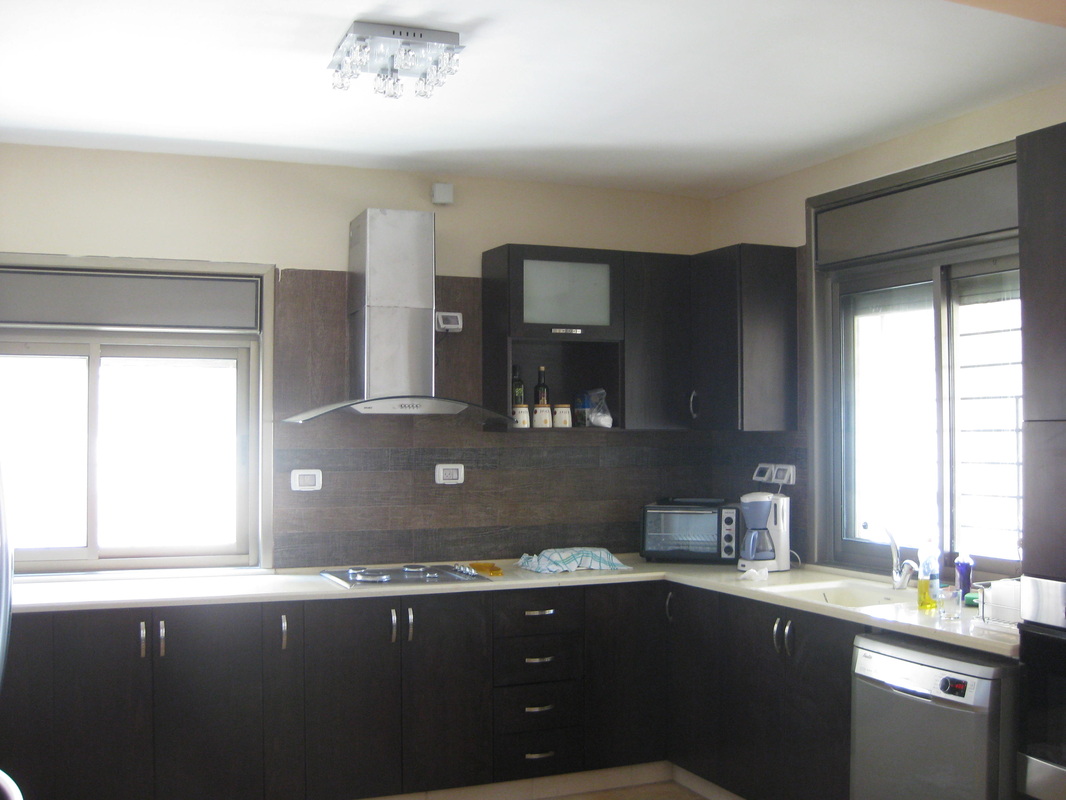Hebron
Occupation Among Us
Charming and I visited Hebron last month, on December 8, 2012 with two of his co-workers: Birlam and Osama. Osama is the merry guy you'll recognize from my Gaza post. Birlam is equally merry, and together Birlam and Osama had a joking cameraderie that was fun to be around and put me at ease with these two.
This ease was in spite of our location, which, along with Nablus is one of the most traditional cities in the West Bank with strong anti-Israel sentiment.
There's a history of bloodshed on both sides. The Saturday we were there, and most days, the occupants, both Israeli and Palestinians, seemed to coexist, ignoring each other like cows of different colors locked in the same field. However, for a newcomer like me, the situation was shocking. The settlements divide the city, displaying a microcosm of what's going on in the whole area. The drama is played out street by street.
A local group was trying to make a clear point about where we were:
We walked through the old city, near what used to be the main street, called Shuhada Street. Shuhada Street was shut down by the Israeli army in 1994 to car traffic, and later, to foot traffic. The economic heart of the city was lost, with 570 Palestinian shops shutting down, and many residents moving out.
It looked like the same group with the red paint was at work again.
We emerged into a square - the center of Hebron. Ahead were Israeli soldiers guarding a settlement entrance.
To our left was a large stone structure, topped by a fence and what appeared to be some male Israeli settlers. They looked down at us, who were obviously tourists, and blew kisses. I took a photo and they instantly went from kiss-blowing to finger-wagging.
Walking more, we saw a street that was literally divided, with a large portion open for Israeli cars, and a side portion open for Palestinian pedestrians. The Israeli army was providing security to a small group of settlers who appeared to be on a tour. As one settler joined the group, he marched down the center of the road, flanked by solders. He stood out in civilian clothes next to the soldiers, and he held an assault rifle in front of him. I wanted to take a photo, but chickened out because we were too close to him. And he had a gun.
After that, we circled back through the portions of the market that remain open. I was eager to see the famous netting that protects the open-air market from the settlers who live in buildings that tower over the market. This netting protects them from the trash that settlers have been reported to throw down on them. I didn't see anyone throwing anything, but we were there on Shabbat, the Jewish holy day of rest.
After the market walk, during which we momentarily and unseriously considered purchasing a Santa Claus Argila...
...We went out for a meal and argila with Birlam and Osama.
The whole day, Osama was teasing Birlam about her thick fleece pants. I admired them; they were embroidered with colorful flowers and looked like a smart choice for a cold day. But like a playful younger brother, Osama kept teasing her, calling her pants "pajama pants." He kept finding moments to make reference to the fact that she was in her pajamas. She laughed along good-naturedly. Birlam heads up the regional office in Hebron, and her large extended family has great esteem in the city. Everywhere we went people greeted her with respect, and she greeted them with a friendly word. Later in the day, after another jab about her "pajama pants," Osama said "Well, I better be careful. With one phone call you could have me killed." Birlam grinned.
"Forget the phone call. With one word. My relatives are everywhere."
I asked Charming about the fact that Birlam seemed so, well, happy, compared to what I perceive as the busy, worried, and nonpublic lives of women in Palestine. He responded that she was well-connected, respected, had a good job, didn't take any bull****, and was not married. So my interpretation is that by not being married in this culture, she was able to keep her sense of independence and self-determination. On the not taking any bull**** front, she told us a story about driving in traffic. Someone cut her off, thinking, she said, "that he could because she was a woman." Well, she jumped out of her car and started yelling at him, and soon had him apologizing upside down and sideways.
Oh, I almost forgot one of the most sense-stimulating parts of the day, which was a visit to the Hebron Kefiya factory. Our tour guides said it was the only Kefiya factory in Palestine.
I chose a few Kafiyas for gifts for my upcoming trip to NC to see the family (you can see photos of them in Kafiya's here).
And that is what I remember from a full day in Hebron back in December. Hope you enjoyed it! Please leave a comment below; I love reading your comments.
How I Spent My Holidays
Trust in Palestine
 I held up my red Trader Joe's bag and mimed putting produce in the bag. The shop owner nodded to affirm that I could use my cloth bag as a shopping basket at the produce store near the city center of Ramallah. After I'd filled my bag with Romaine lettuce, apples, passionfruit, pears, oranges, and a pineapple, I brought it to the back of the shop where the cashier stood. One by one, I set my selections on the counter, reaching deep into the bag to make sure that there was nothing left in there.
"Is your bag empty?" the cashier asked with a friendly smile.
I held up my red Trader Joe's bag and mimed putting produce in the bag. The shop owner nodded to affirm that I could use my cloth bag as a shopping basket at the produce store near the city center of Ramallah. After I'd filled my bag with Romaine lettuce, apples, passionfruit, pears, oranges, and a pineapple, I brought it to the back of the shop where the cashier stood. One by one, I set my selections on the counter, reaching deep into the bag to make sure that there was nothing left in there.
"Is your bag empty?" the cashier asked with a friendly smile.
"Yes. I think so." I picked up the bag from the bottom and flipped it over, shaking to make sure no fruits were hiding in the corners.
"No. Don't do that," the man said darkly and with a small cringe.
"Shaking the bag? Is it bad luck?" I asked.
"No… it's a mistake. You think I don't trust you."
"Oh, no, I said. "I shook it for me, for me to make sure there was nothing left. For me."
"Okay. If it's for you, it's okay."
Trust. It seems to be a delicate and tender subject here in Palestine. I've had more than one encounter like the above. Proof offered too bluntly, as if in a hurry to show that one can be trusted is embarrassing in this culture. Perhaps in the U.S., we too feel some sense of slight embarrassment if we ask for evidence that the bag is empty, that we aren't dealing with a shoplifter. Yet here there's a stronger sense of affront, perhaps to a thicker sense of honor, if someone provides too fast a proof of their own honestly. It's almost as if the other person is saying "Seriously, stop trying to prove yourself! I don't doubt your honestly. By thinking I doubt you, you are basically calling me a suspicious miser, and that is highly offensive."
In a similar vein, I've often paid for something with a bill that is too large. When I first arrived, if the change was tiny (1/2 shekel, or the equivalent of 13 cents) I might say "keep the change," only to be meet with a vehement "no, no" and to find the change thrust upon me.
The positive side of this cultural element is generously given trust. Yesterday morning I went down to a martial arts studio-gym that recently opened up not far from our apartment. They offer personal training and gym membership. I had emailed earlier about setting up a personal training appointment, but when I arrived, I discovered that the gym didn't take credit cards, which was the only payment method I brought. The manager of the gym, who had met me only once before, said "That's alright. You can pay next time. Shall we start with some cardio?"
As I relate this incident, another one comes to mind. A shop owner is telling me, "you can pay next time." Since I don't remember anything else about the incident, I'm not sure if I went back and paid him. I hope I did.
Although this extensive trust in customers seems to my American entrepreneurial mind like poor business practice, it does warm my heart to a culture that I haven't always felt warmly towards.
Another heart-warmer is walking around town with our new puppy, Jelly. I was afraid people would be fearful or antagonistic towards her, since it's not a culture that is big on dogs. Instead, some simply ignore her, and others are downright friendly. I took her on her first car trip since the one that brought her from the shelter to our apartment, and when we got out, a group of young men began whistling and making kissing sounds in our direction. Instead of my usual sense of annoyance at young men making kissing sounds at me, I thought "they are talking to Jelly," and they were.
They asked what her name was, and then called her name, "Jelly Jelly Jelly." I went and did my errand, and when I passed by them again, they said "Jelly Jelly Jelly!" They seemed totally absorbed in her charms, and not in my perceived charms, and I was grateful. It occurred to me that this dog is going to change my relationship to men in Palestine. She is my protector (she seems to bark at people who I'm afraid of and to be friendly to people I like) and she is also a friendly diplomat - a sort of buffer zone - who will ease gender relations for me. Yes, it also occurred to me that men here (some, always some, not all) treat dogs the same as they treat women...
But that is another blog post for another time.
Many of you have been worried about me and Prince Charming with the escalating violence here. Thanks for your care, and to those of you who have sent messages our way. We feel safe here, but we are taking precautions to stay away from protests. Charming has been working very hard, and his NGO has been an important voice for peace in the media lately. He's had a vital role in managing the emergency response, and I'm very proud of him. He's helped save lives and will help save many more. If things escalate much further, we may have to evacuate. But for now, we seem to be as safe as we were in Los Angeles.
Finally, for those of you who are excited about my book Minimalism for Grandparents: Decluttering for Health, Happiness, and Connection in the Golden Years, you can like the Facebook page here. I think that those of grandparent age, as well as youngsters, will get value out of it if they have an interest in living a simplified, meaningful life.
Peacefully yours,
Genevieve
Lessons With Mohammad
Cool Shey Tamaam
My husband = Zowji = زوجي No problem = Mish Moshkilay = مش مشكيلة Tea with mint with sugar = Shai bee nana bee sukar = شاي بي نانا بي سكر Everything is perfect = Cool shey tamaam = كل شي تمام
I feel like I'm REALLY close to being able to read Arabic. I'm able to sound out many words on street signs if I give myself plenty of time. Knowing what the words mean is a whole different ballgame. But I have a fun feeling of a whole new world opening up. It's like being five and learning to read all over again.
Taybeh Micro Brewery in Taybeh, Palestine
A Beer for Jesus
This weekend, Prince and I jumped in the car, which had newly fixed air conditioning. AC, my friends, can save the world, or at least save a hot summer drive in Palestine. The AC was good for our marriage, and we actually enjoyed the drive to the tiny village of Taybeh, getting lost only a few times.
We arrived and drove almost straight into the microbrewery. It is tiny. No one seemed to be around. We left and came back. It looked like a garage with the door open. Should we wander around alone, we wondered?
Prince Charming thought not. We weren't even sure we were in the right place.
"You're right. This is weird." I said.
Finally, out of curiosity we wandered in, and we saw someone we had missed before: the daughter of the owner of the microbrewery, Ms. Koury. I'm sorry I can't remember her first name. Her family established the brewery in 1994. She very kindly gave us a tour. It was wonderful to see a successful enterprise where the owners obviously cared a great deal about the pristine quality of the product. We didn't get the free taste of beer at the end of the ten minute tour that the brochures promise, but it was rather early in the day and we also forgot to ask about it. We left with a box of beer and a couple photos of the brewery:

 Taybeh changed it's name from Ephraim (of biblical fame) to Taybeh when Sultan Saladin passed through in 1187 and thought the folks in the village were hospitable and generous. Apparently, that's what Taybeh means, although we also heard that it means "delicious" so maybe the people tasted good too.
Taybeh changed it's name from Ephraim (of biblical fame) to Taybeh when Sultan Saladin passed through in 1187 and thought the folks in the village were hospitable and generous. Apparently, that's what Taybeh means, although we also heard that it means "delicious" so maybe the people tasted good too.
Jesus stopped by this village for a rest before his crucifixion. It's too bad the Taybeh Micro Brewery wasn't around in his day; I think he would've enjoyed the beer quite a bit, especially considering the series of really bad days coming up for him. Today, Taybeh is the only "Christian Village" left in Israel and the Occupied Palestinian Territories, although there are many towns with Christians in them.
After our tour of the microbrewery, we endured 2.5 miles of spiritual and physical testing out in the desert outside of Taybeh on a lovely hike under the blazing noon sun. In the middle of our death march, we took refuge under a large olive tree. Much to our delight, the tree did not shrivel and die, but provided shade for our half hour rest and consumption of water, dates, peaches, and almonds.
We took the tree, and the spray-painted rock markers, to be a sign that we were on the right path, both spiritually and geographically, and continued a short ways to gaze at the dark mouths of caves in the hills surrounding Taybeh.
When we got back into the village, we found Peter's Place, a brand new restaurant that was "soft open," meaning that is was so new it hadn't had it's official grand opening yet. Ms. Koury recommended it, and we are so glad she did and that we climbed up the hill to the middle of the old part of the village to find such an oasis.
It was also so new that the menu had just a couple options: salad, seasoned bread, and/or hot meal:
 Although the inside of the restaurant was cavelike, cool, and beautifully lit,
Although the inside of the restaurant was cavelike, cool, and beautifully lit,
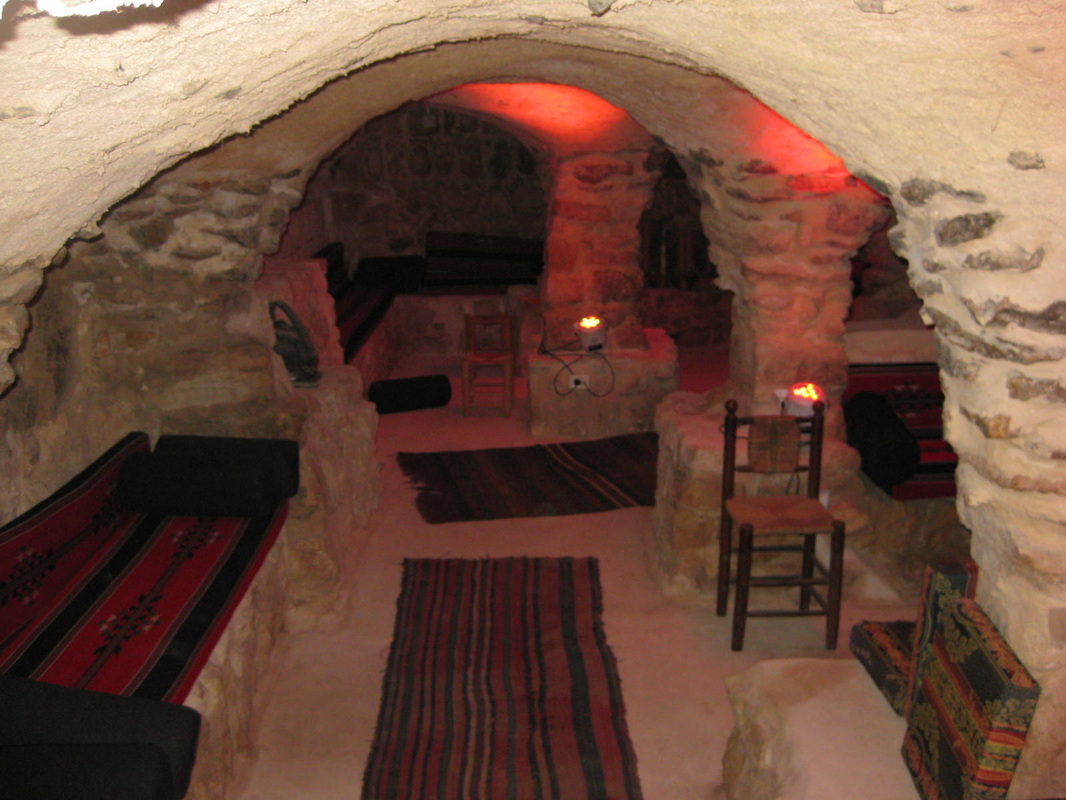 We decided to sit outside where the patio offered cool breezes and nice views. To finish up this post, I'll add this video which captures my general fatigue and joy at sitting down with a cold beer after a hike on a hot and dusty day.
We decided to sit outside where the patio offered cool breezes and nice views. To finish up this post, I'll add this video which captures my general fatigue and joy at sitting down with a cold beer after a hike on a hot and dusty day.
Four Different Kinds of Water Massage
 Prince Charming is smitten with the kitchen and has big plans for all the delicious things he's going to cook here:
Prince Charming is smitten with the kitchen and has big plans for all the delicious things he's going to cook here: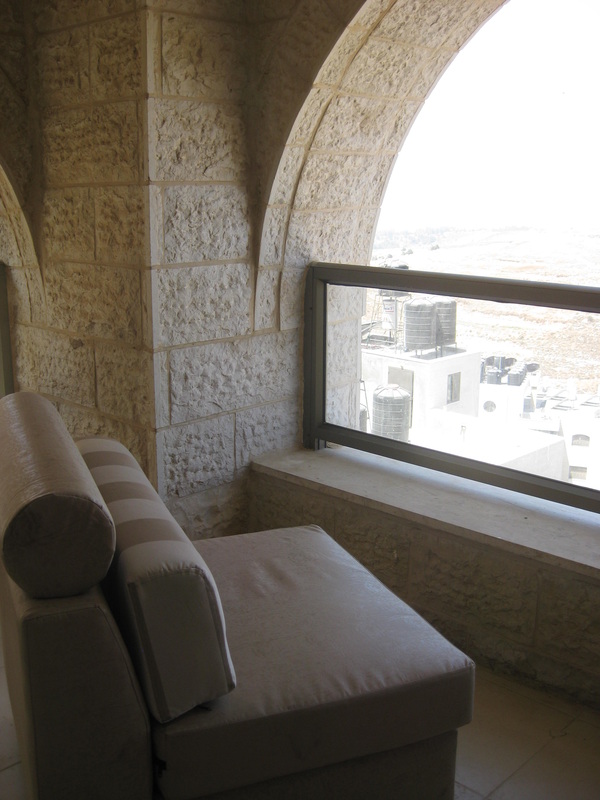 The view at sunset is spectacular. I'll think about taking some nice shots of the view for a later posting. In the mean time, check out the beautiful nighttime shot of Ramallah from our old patio that Charming took and posted on his blog.
The view at sunset is spectacular. I'll think about taking some nice shots of the view for a later posting. In the mean time, check out the beautiful nighttime shot of Ramallah from our old patio that Charming took and posted on his blog.
The new place has significant charms, including a shower with four different kinds of water massage and a radio. However, as of right now, the internet and hot water (as well as a long list of other lesser functions) are kaput. The landlord promised in a very passionate telephone conversation (passionate compared to US landlords, perhaps normal here) yesterday that we can trust him and that it will all be working very soon.
Bug Bites and Black Belts: The Little Things Are Big Things
 Yesterday was a tough day of little challenges. I couldn't sleep, and in the morning, I was complaining to my prince about the extreme itchiness and discomfort I was experiencing from the bites from whatever tiny creatures inhabit our mattress. Or, I theorized, were the bites from mosquitos? Could he ask the people at the office if they had any advice? He was sipping the morning coffee that I made him in front of an open window, and looking doubtful that among all the saving children, he was going to have time to ask about the possibility of bugs in our mattress. I looked at the open window and got up to slide the screen shut, giving him a "the least you could do is shut the screen to keep the bugs out" look. Then we argued about the insect life in Rammallah, Palestine, vs. Lumberton, NC. He went to work. I cried my eyes out for an hour, loudly, relishing the fact that no one I knew was going to hear me and ask any questions. I rallied, called him, and resolved our stupid little argument. I found the pain-relieving spray (see photo) that Prince Charming had, of course, thought to pack, covered my skin with it, and slept blissfully for four hours.
Yesterday was a tough day of little challenges. I couldn't sleep, and in the morning, I was complaining to my prince about the extreme itchiness and discomfort I was experiencing from the bites from whatever tiny creatures inhabit our mattress. Or, I theorized, were the bites from mosquitos? Could he ask the people at the office if they had any advice? He was sipping the morning coffee that I made him in front of an open window, and looking doubtful that among all the saving children, he was going to have time to ask about the possibility of bugs in our mattress. I looked at the open window and got up to slide the screen shut, giving him a "the least you could do is shut the screen to keep the bugs out" look. Then we argued about the insect life in Rammallah, Palestine, vs. Lumberton, NC. He went to work. I cried my eyes out for an hour, loudly, relishing the fact that no one I knew was going to hear me and ask any questions. I rallied, called him, and resolved our stupid little argument. I found the pain-relieving spray (see photo) that Prince Charming had, of course, thought to pack, covered my skin with it, and slept blissfully for four hours.I didn't feel hungry, but I felt lost. I began to cry. I wanted to lie down. I remember that my instructor came over to me and said "What's wrong?" I shook my head, saying something like "I don't know, ahhh! I don't know….no snack yet, I lie down here?"
He gave me the most bewildered look, and said something like "You just beat Bronx girl, and now you are crying?"
It was a Little Things are Big Things moment. It's not the big fight that'll get you. It's missing your snack two hours later.
Goats Staring Me Down
Around Ramallah
Early this morning I went for a very short jog on Al-Teera, the main road in Ramallah that is acceptable for women to run on alone from what I understand. I paused to take this photo of pink flowers and a minaret in the background: 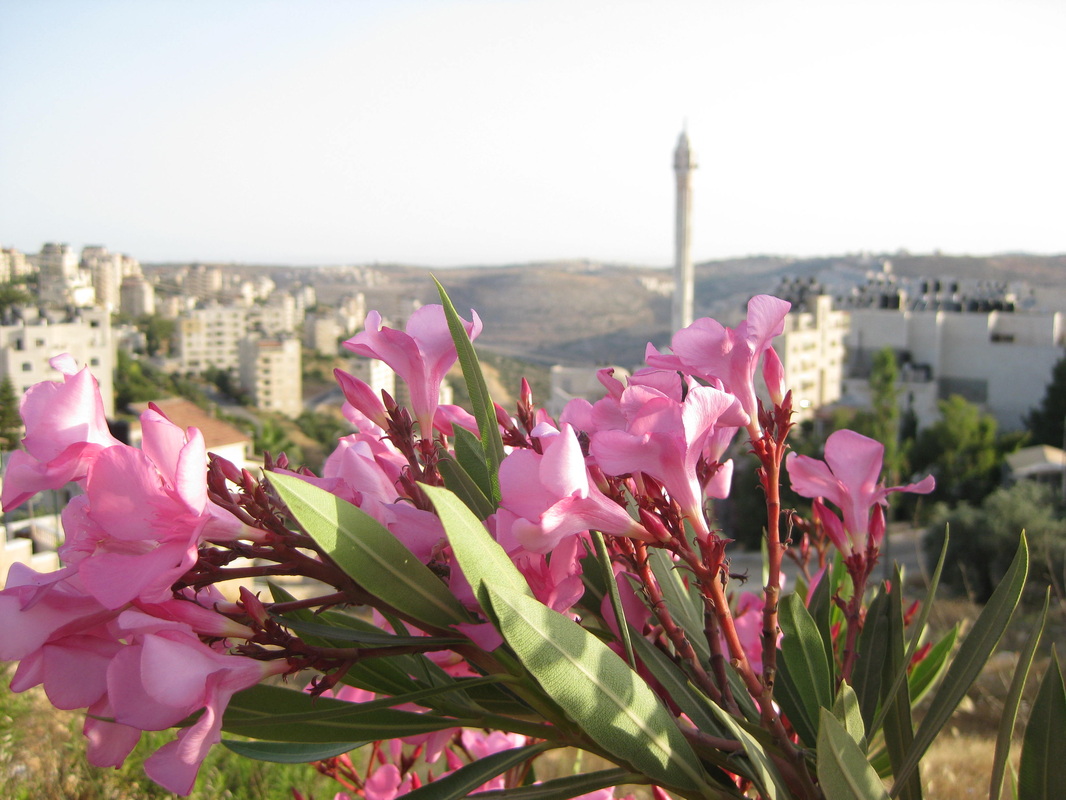
Later, I noticed our neighbors were grazing their goats in the front yard:
And finally, here is the amazing view from where we are staying right now. It's a good general view of a lot of the city, as well as a lovely grove of olive trees in the valley below:


